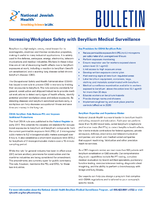Wheeler Industries Manufacturers High Speed and Heavy Load Babbitt Bearings

Journal bearings normally include sleeve, plain, shell and babbitt bearings. The word babbitt actually describes the layer of softer metals (lead, tin and copper) which forms the inner metal contact surface of the bearing shell. These softer metals overlay a stronger steel support shell and are needed to cushion the shell from the harder rotating shaft.
Babbitt bearings are manufactured by the deposition of a thin layer of Babbitt metal on top of the plain bearing. Babbitt bearings are widely-used in numerous applications. These include high-speed rotating equipment such as compressors, chillers, turbines, electric motors, gear drives, locomotives, marine, and pumps. Babbitt bearings usually comply with specifications belonging to the American Society of Mechanical Engineers (ASME) and the International Standards Organization (ISO).
Babbitt material consists of a combination of copper, antimony, tin and lead. The material, better-known as Babbitt, is coated on top of the bore most commonly to a thickness 0.025 mm to 2.5 mm, which is commonly employed in integral bearings. Two primary categories of Babbitt metals are tin based and lead based. Tin-based Babbitt is used for high speed or hard to lubricate bearings, while lead-based Babbitt is employed with low speed or heavy load bearings. The composition of Babbitt material is made up of small, hard crystals dispersed in a matrix of softer alloy. As the Babbitt bearing wears, the harder crystals are exposed. With the erosion of the matrix, the bore surface of the babbitt bearing becomes distorted and will fail.
The presence of impurities or foreign particles such as dirt can result in catastrophic failure in Babbitt bearings. The dirt gets embedded within the soft Babbitt material and displaces the material, which in turn creates a raised section on the bearing surface. This raised portion can easily rupture the oil film resulting in the bearing surface to come in contact with the rotating journal, which causes a rubbing action and ultimately bearing failure.
The leading causes of the existence of debris on the bearing surface is improper cleaning during installation, contaminated lubricating oil and clogged oil filters. This type of failure can be avoided by ensuring that proper cleaning procedures are carried out during installation and lubricating oil filters are periodically cleaned or replaced per their manufacturers specification.
For close to a century, Wheeler has been helping industry solve their bearing needs by providing world-class manufacturing, rebabbitting services and design assistance. Recently, Wheeler and General Electric Support Services have become partners in supplying bearings, oil rings and seals to industry.
Wheeler Industries, Inc.
7261 Investment Drive
N. Charleston, SC 29418
843-552-1251
www.wheelerfluidfilmbearings.com




